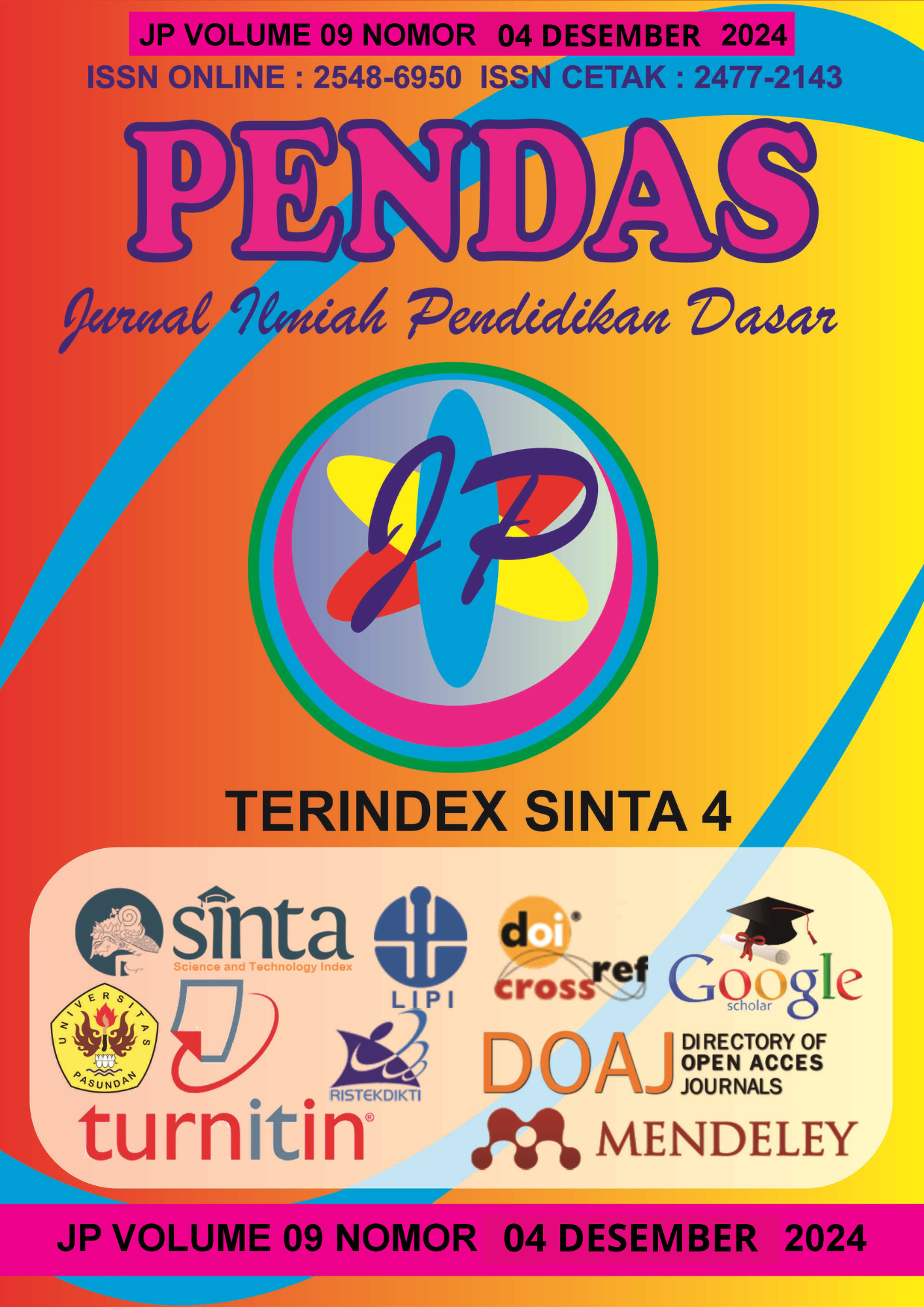PENGARUH PENERAPAN PENDEKATAN CREATIVE PROBLEM SOLVING (CPS) TERHADAP KEMAMPUAN KOMUNIKASI MATEMATIS DITINJAU DARI GAYA BELAJAR SISWA
DOI:
https://doi.org/10.23969/jp.v9i04.18911Keywords:
Creative Problem Solving, Mathematical Communication, Learning StylesAbstract
The aim of this research is to determine the influence of applying the Creative Problem Solving (CPS) approach on mathematical communication skills in terms of student learning styles which are divided into visual, auditory and kinesthetic learning styles. This research is a quasi-experimenta research with The Nonequivalent Pretest - Posttest Kontrol Group Design with a total sample of 43 students. Data were analyzed descriptively and inferentially using a 2-way ANOVA test which was first carried out by the Prerequisite Test. The descriptive research results showed that there were differences in the mathematical communication abilities of experimental class students who applied the Creative Problem Solving (CPS) approach and kontrol classes who did not apply the Creative Problem Solving (CPS) approach to mathematical communication abilities in terms of students' learning styles and the application of the Creative Problem Solving approach. (CPS) is better than conventional in terms of students' learning styles. Inferentially, the Creative Problem Solving (CPS) approach influences mathematical communication skills, learning style has no effect on mathematical communication abilities, and there is no interaction between the Creative Problem Solving (CPS) approach. and learning styles on mathematical communication skills.
Downloads
References
Buku :
Hake, R. R. (1999). Analyzing Change/Gain Scores.AREA-D American Education Research Association’s Devision.D, Measurement and Reasearch Methodology.
Rifky, S., Halik, Muhammadiyah, M., Ramopoly, I. H., Karuru, P., Iis Rodiah, I., Sukmawati, Wibowo, A. A. H., Pinatih, N. P. S., Bariah, S., Harosid, H., Sulaiman, Murtado, D., Saktisyahputra, Muhtadin, D. A., Suryana, & Judijanto, L. J. (2024). Dasar-dasar Pendidikan: Panduan Untuk Menjadi Pengajar Profesional. PT. Sonpedia Publishing Indonesia.
Upu, H., Annas, suwandi, Rahma, N., Nurhajarurahman, St. Z., Marwah, D. N., Oddang, N. sari, Sudarto, S., Rahmayanti, M., Sukmawati, S., Yuslihuddiyari, A., & Srimirnawati, S. (2019). Prosiding Seminar Nasional Pendidikan, Riset, dan Pembelajaran. In 2019. Global Research and Consulting Institute (Global-RCI).
Willingham, D. T., Hughes, E. M., & Dobolyi, D. G. (2015). The Scientific Status of Learning Styles Theories. Teaching of Psychology, 42(3), 266–271.
Jurnal :
Agustyaningrum, N. (2011). Implementasi Model Pembelajaran Learning Cycle 5E Untuk Meningkatkan Kemampuan Komunikasi Matematis Siswa Kelas IX B SMP Negeri 2 Sleman. Prosiding Pendidikan Matematika FMIPA UNY, 376–387.
Alin Putri Dianti, Amaliyah, A., & Puspita Rini, C. (2021). Analisis Kemampuan Komunikasi Matematis Dalam Menyelesaikan Soal Cerita Siswa Kelas IV SD Negeri Petir 4 Kota Tangerang. Berajah Journal, 2(1), 16–24. https://doi.org/10.47353/bj.v2i1.44
Ariani, D. N. (2017). Strategi Peningkatan Kemampuan Komunikasi Matematis Siswa SD/MI. Muallimuna Jurnal Madrasah Ibtidaiyah, 3(1).
Ayu, D., Indrawatiningsih, N., & Nazihah, Z. (2023). Profil Kemampuan Komunikasi Matematis Tulis Siswa Kelas VII Pada Materi Bangun Datar Segiempat. International Journal of Progressive Mathematics Education, 3(1), 36–50. https://doi.org/10.22236/ijopme.v3i1.7621
Downloads
Published
Issue
Section
License
Copyright (c) 2024 Pendas : Jurnal Ilmiah Pendidikan Dasar

This work is licensed under a Creative Commons Attribution 4.0 International License.














































